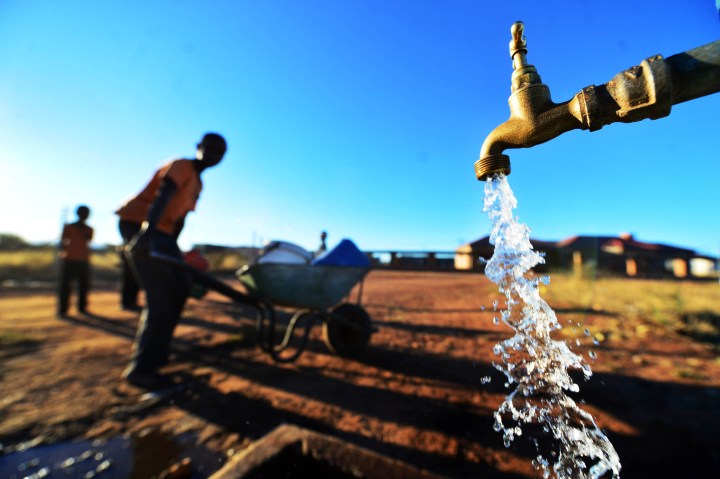OP-ED
Bridging troubled waters: A public-private pipeline can potentially solve South Africa’s water crisis

The country faces a potentially catastrophic water crisis, but it can be averted if water provision is depoliticised, taken out of the hands of government and into public-private partnerships.
Zaid Railoun is a water sector analyst and due diligence officer at Investment Fund Africa.
Globally, there is an increasing demand for clean water, particularly in water-scarce countries such as South Africa. Shortages are felt across many South African industries as a result of rapid population growth, climate volatility, drought and rising sea levels, which are being accelerated by climate change, water-related pollution risks, inconsistent governance and ageing water infrastructure.
If the current rate of water use continues, the demand is likely to exceed the supply. More than a third of South Africa’s supply is lost due to ageing and leaking infrastructure before it can be used. Public infrastructure, particularly at the municipal level, plays an important role in achieving increased levels of economic growth and social upliftment. However, the mismanagement of it and the inability to effectively maintain it could result in economic water scarcity and affect other sectors such as education and health.
The use of public-private partnerships in the water services sector in South Africa is needed to address issues that might be catastrophic for future generations. A public-private partnership is a long-term contract between the public and private sectors that will provide service delivery through which the private sector or party carries the risk and manages the responsibility.
But even this must be adapted through investments in institutions and water infrastructure, looking at ways to always make people the priority. This is echoed in the realism of people-first, public-private partnerships, as stated in the webinar series Infrastructure and Financing by David Baxter.
The people-first, public-private partnership approach ensures that out of all stakeholders, “people are on the top”. Its focus is on improving the quality of life of the communities, particularly those fighting poverty, by creating local and sustainable employment. Additionally, this approach aims to eradicate hunger and promote wellbeing, access to water, energy, transport and education for all. It will also support social cohesion. The people-first, public-private partnerships must expand in scale and speed, with more people having access to better services.
Our hope is for the new National Water Resources Infrastructure Agency to be more transformable and not transactional, as are our other state-owned enterprises (SOEs) such as Eskom. The establishment of the agency was announced by President Cyril Ramaphosa during his State of the Nation Address in February 2021. Its strategic intent is to be a well-resourced SOE with appropriate governance structures, to ensure greater efficiency and accountability in the socioeconomic development and management of water resources infrastructure.
It would be prudent for the new agency and the Department of Water and Sanitation to work adjacent to the private sector with organisations such as the South African Water Chamber. The chamber’s vision is to be South Africa’s leading water business catalyst and pursue the redistribution of “privilege” through dignified employment and inclusive economic growth enabled by water.
These private and public role players are good potential pathways to build a new holistic, independent water regulator that services and educates people about the value of water. Independent regulation of water would ensure non-politicised management of South Africa’s water allocations. Furthermore, it would regulate the pollution of water resources, with the regulator enforcing compliance at all levels – industry, municipalities, farming or SOEs.
As South Africa battles a third wave of Covid-19, and amid the chaos, destruction and looting in recent weeks, it’s easy to forget our bogeyman – a catastrophic water crisis with potentially devastating consequences for economic productivity, livelihoods, safety and security. DM

















 Become an Insider
Become an Insider
Comments - Please login in order to comment.